Coupe vs Sedan: Pros, Cons & Differences
-
Codee Chessher
- Last updated:
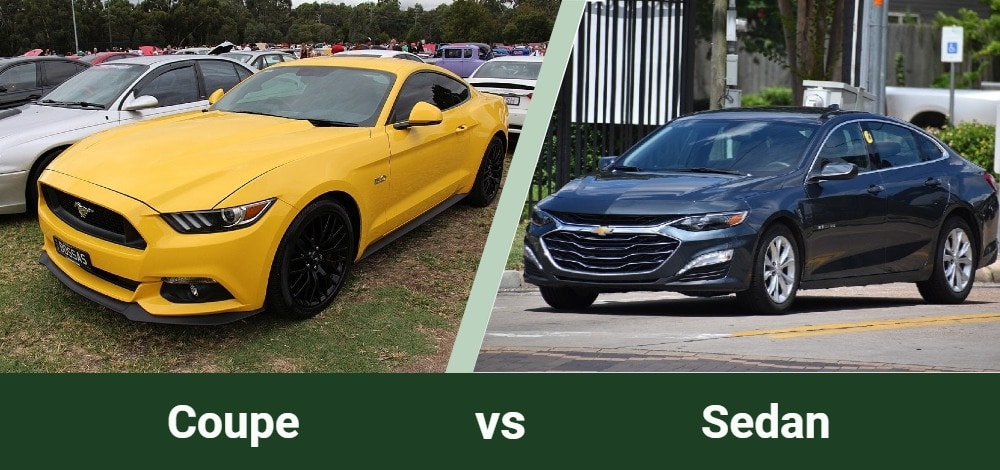
Cars come in all types, sizes, and shapes these days, and it can be hard to tell the difference between some of them. For instance, what exactly is the difference between a sedan and a coupe? Do they have any similarities? Let’s check out the answers to both of those questions and some other relevant info below.
Click Below to Jump Ahead:

Overview of Coupes
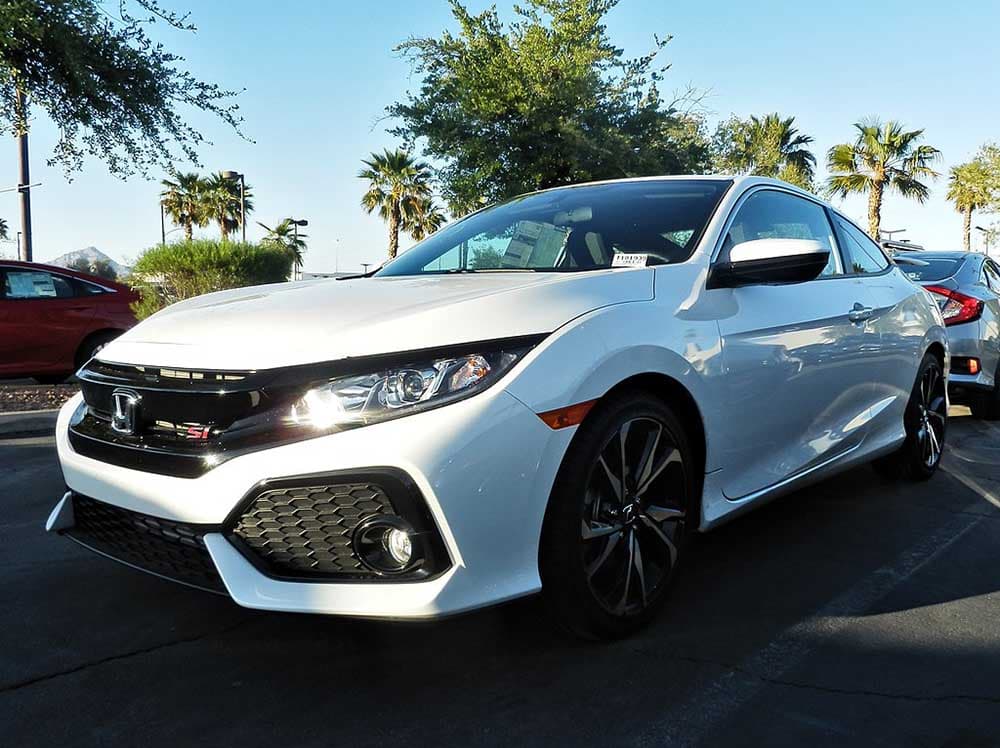
A coupe is a type of car with a fixed, closed roof, a three-box design, and two doors. However, some coupes in recent years have four doors. More crucially, a coupe is defined as any car with under 33 cubic feet of interior space. The exteriors are typically smaller and sportier, allowing for better handling and performance. They have a sloping, truncated roofline, which helps improve the car’s aerodynamics and contributes to the sporty feel.
Most coupes only have two seats, but some have a smaller row of passenger seating in the back. So-called four-door coupes preserve the car’s sporty feel while providing more interior space and doors. This roof style limits the amount of headroom in the car, plus makes it more difficult to get in and out. Coupes are notoriously hard to get in and out of for back seat passengers, which combined with cramped seating, makes them poor for families.
Number of Doors
Coupes are generally agreed to be two-door cars, but four doors are becoming popular too, blurring the lines between coupes and sedans. Coupes with four doors typically distinguish themselves with a sporty exterior.
Style
Coupes are designed for optimal speed and handling, and their aerodynamic roofline has become iconic. They lean toward the small end of the spectrum, which further optimizes speed. Even hybrid coupes these days tend to keep a stylish, sloping roofline to make it clear what kind of car they really are.
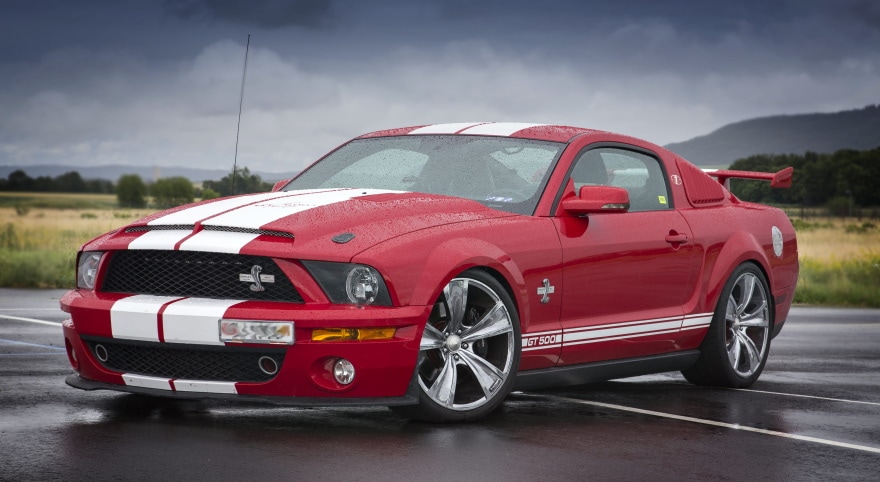
Cargo Space
Coupes are typically horrible for transporting people or cargo, though hatchback coupe hybrids have helped. These cars keep the two-door design but sacrifice the sloping roofline in the back, making them a bit slower than ‘true’ coupes.
Cost of Ownership
Because coupes are geared toward performance, they’re more expensive than sedans on average, but budget coupes are available too. This also means they tend to use more gas, especially if you like to drive fast. Parts for coupes are more expensive than those for sedans, and labor to repair them usually averages more too. Finally, faster cars universally jack up your insurance costs.
- Lightweight and aerodynamic
- Capable of fast speeds
- Great handling
- Sleek design language
- Roomy front seats
- Fun to drive
- Not very practical
- Struggles to transport more than 2 people at a time
- Typically uses more gas than other cars
- More expensive on average than sedans
- Limited hybrid availability

Overview of Sedans
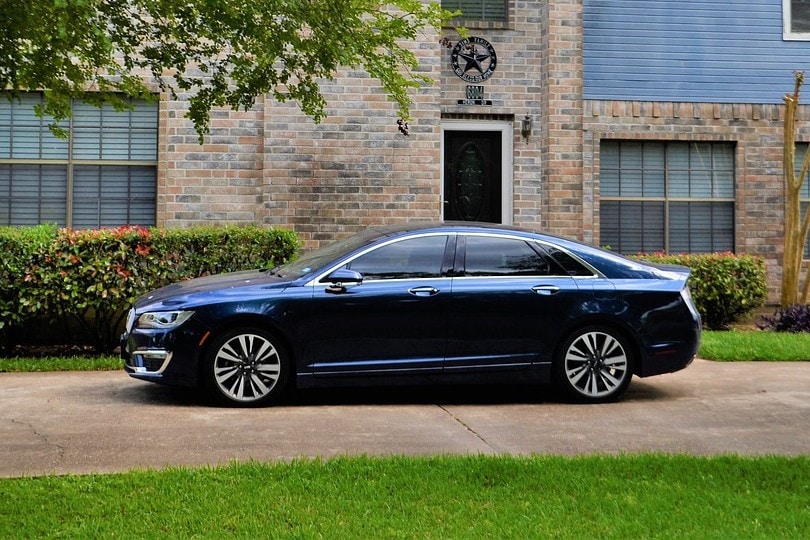
Sedans are your average four-door car, though some smaller sedans may opt for a two-door design. Officially, a sedan is any car with more than 33 cubic feet of interior space, which makes them better for families than coupes. Sedans have a less sharply curved roofline to maximize interior headroom, which makes them feel airier than coupes, which can feel claustrophobic. Sedans are often combined with other car types like hatchbacks, SUVs, and even coupes.
Sedans usually have two rows of seating, with the standard being two in the front and a max of three people in the back. However, small sedans with only one row of seating emulate a coupe-like experience. Most sedans are geared toward sensible fuel economy and less focused on performance, but performance sedans exist too.
Number of Doors
As we mentioned, sedans typically have four doors to make them a more family-friendly vehicle. Two-door sedans are relatively uncommon, trying to make the compromise between interior room and performance.
Style
Sedans appear boxier and more boring than coupes, and they average longer too. Together, these can make sedans appear like purely functional vehicles, which isn’t far from the truth. Sedans are typically considered a pragmatic daily driver and family vehicle rather than strikingly sporty like coupes.
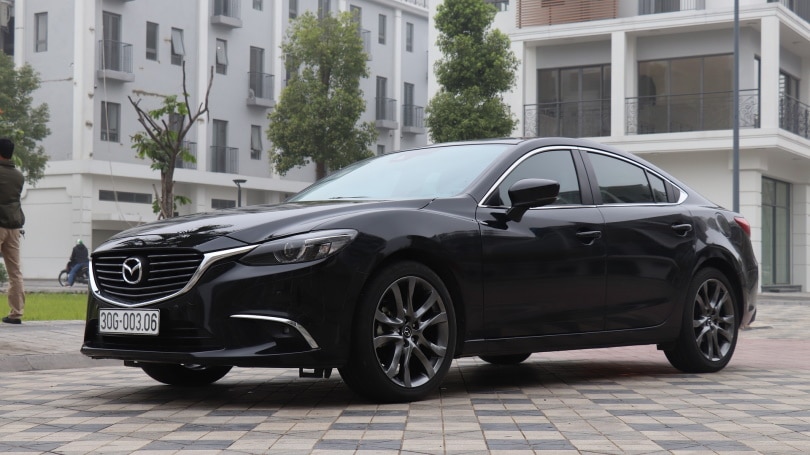
Cargo Space
Sedans vary drastically in the amount of space they have. Hatchback-style sedans may compromise a bit on room for passengers to create more cargo space, while SUVs feature more spacious interiors overall. Standard sedans have cargo space on par with a coupe, on average, but it really depends on the make and model you choose.
Cost of Ownership
Sedans are more reasonably priced than coupes because they focus less on expensive performance and are cheaper to produce. Hybrid sedans help to save even more on gas, and sedans are also cheaper to insure because they aren’t as fast as coupes. This makes them even more of a practical choice for families or the fiscally minded.
- Cheaper to insure than coupes
- More interior space
- Good fuel economy
- Affordable
- Many hybrid varieties are available
- Less attractive design
- Not as fast as coupes
- Less aerodynamic design harms fuel economy

Which Is Right for Me?
By now you should have a pretty good idea of the major differences between coupes and sedans, but we know it can be hard to choose with so many great cars on the market. To decide whether a coupe or sedan is right for you, ask yourself some questions.
- How Important Is Fuel Economy? Sedans are way better on gas than coupes, which translates to you shelling out less to fill up at the pump. However, some coupes are very good on gas, so it pays to shop around and check out the fuel economy for some cars you’re looking at buying.
- Do I Care About Speed? Sedans have powerful engines, but coupes are typically faster and more fun to drive. Sedans are rather tame, but most people don’t need to reach speeds of 100 miles per hour or more. If you’re looking for a fun car to race around in, spring for a coupe. For a more practical family vehicle, go with a sedan.
- What’s My Budget? Because they’re comprised of more high-quality parts, coupes usually cost a great deal more than sedans. Cheap coupes exist, but there are countless sedans with greater performance in the lower price range. On average, you’re better off either going with a budget sedan or a more expensive coupe so you can get the most out of your investment.

In Conclusion
Coupes and sedans both fill important niches in the automotive industry, targeted at very different audiences. The former is more of a fun and expensive toy, while sedans are a more reliable and affordable family vehicle.
Featured Image Credit: (L) 2015 Shelby GT350R (Image Credit: Sicnag, Wikimedia Commons CC BY 2.0) | (R) ArtisticOperations, Pixabay
Contents